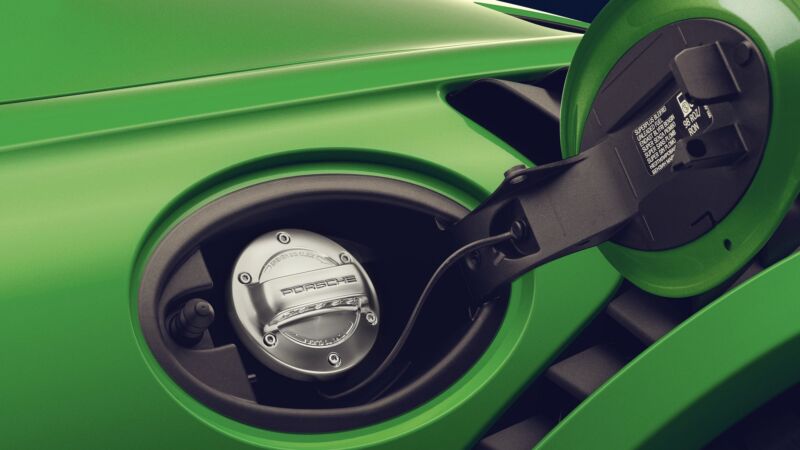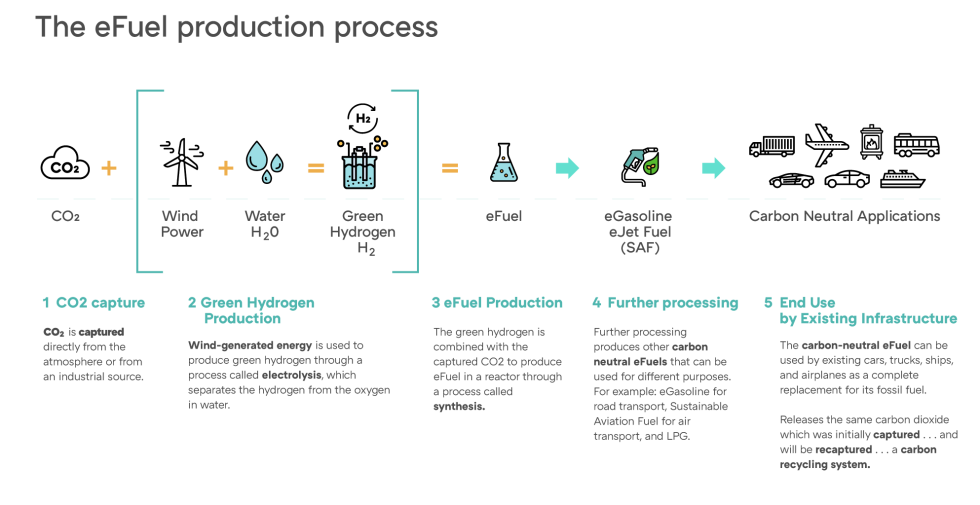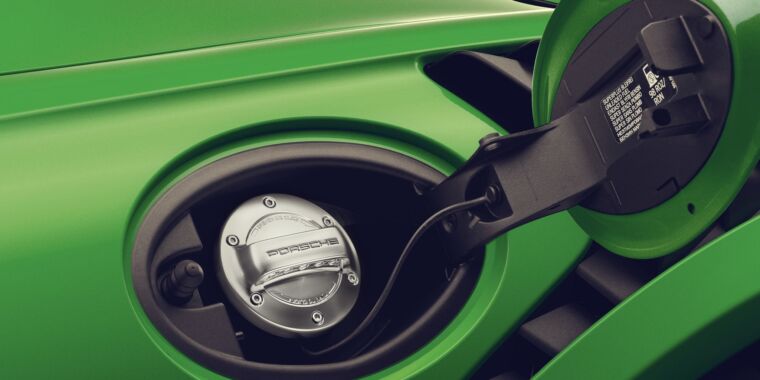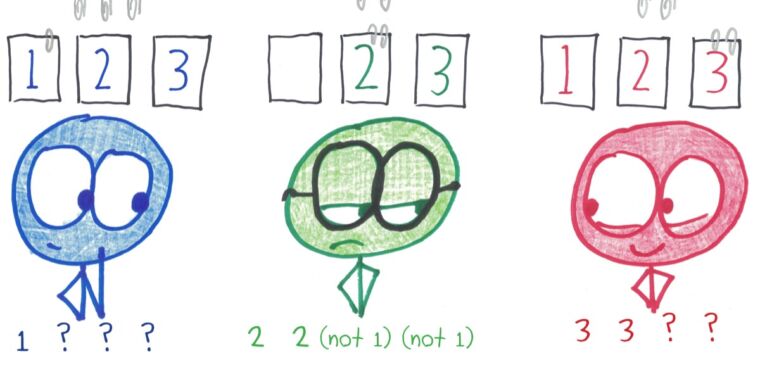
Porsche
In 2021, Porsche announced that it was starting to work with synthetic fuels. The company is rather proud of the fact that so many of the cars it has built over the decades are still on the road and recognizes that the only way to maintain that in an increasingly climate-blighted future will be with synthetic gasoline that’s made with carbon sucked from the air.
In September last year, the Haru Oni pilot plant, built for that very purpose, broke ground in Punta Arenas in Chile. That plant was funded in part by Porsche as well as Siemens Energy and ExxonMobil but is being built and will be operated by a Chilean startup called HIF Global. On Wednesday Porsche announced that it was investing $75 million to buy a 12.5 percent stake in the startup.
The efuel-making process at Haru Oni starts by capturing CO2 from the air and using wind power to electrolyze water into hydrogen and oxygen. The carbon and hydrogen are used to synthesize methanol, and the methanol is then turned into longer hydrocarbons using ExxonMobil’s methanol-to-gasoline process.

HIF Global
Hari Oni’s pilot phase (which received $22 million in funding from Porsche) should start producing its first synthetic fuel by mid-year, with a targeted annual production rate of 34,000 gallons (130,000 L) by the end of 2022. From there it’s full steam ahead, scaling up to 14.5 million gallons (55 million L) in 2024 and 145 million gallons (550 million L) by 2026, at a cost of about $7.6 per gallon ($2 per L).
Although this new funding doesn’t change the trajectory of the Haru Oni plant, Michael Steiner, member of the executive board for Research and Development at Porsche sees extra efuel manufacturing capacity being added in North America and Australia in the coming years.
“[In Chile] it is wind energy—you could expect that maybe in the US there could be solar energy as a source, also in Australia. That always depends on the location, but in principle that should and will lead into investments in that two additional areas: North America, and Australia,” Steiner said. Long-term plans call for 12 plants at a total cost of $50 billion, each capturing 2 million metric tons of CO2 a year, according to Haru Oni.
Porsche has been testing the synthetic fuels in motorsport, and Steiner told Ars there had been no issues at all with the drop-in fuel.
As supplies increase, it also plans to use synthetic fuel for the initial fill of its new gasoline-powered vehicles at the factories, as well as at the Porsche Experience Centers around the world. Formula 1 might even become a customer when it switches to synthetic fuel in 2026—last year Porsche told Ars that those talks had already begun. Cars aren’t the only potential customers either; the aviation and marine sectors will both want synthetic carbon-neutral fuel soon, and the synthetic methanol is also valuable as an industrial feedstock.
But in truth it probably doesn’t matter so much where all the synthetic fuel is burned, just that it burns in fossil fuel’s place.








